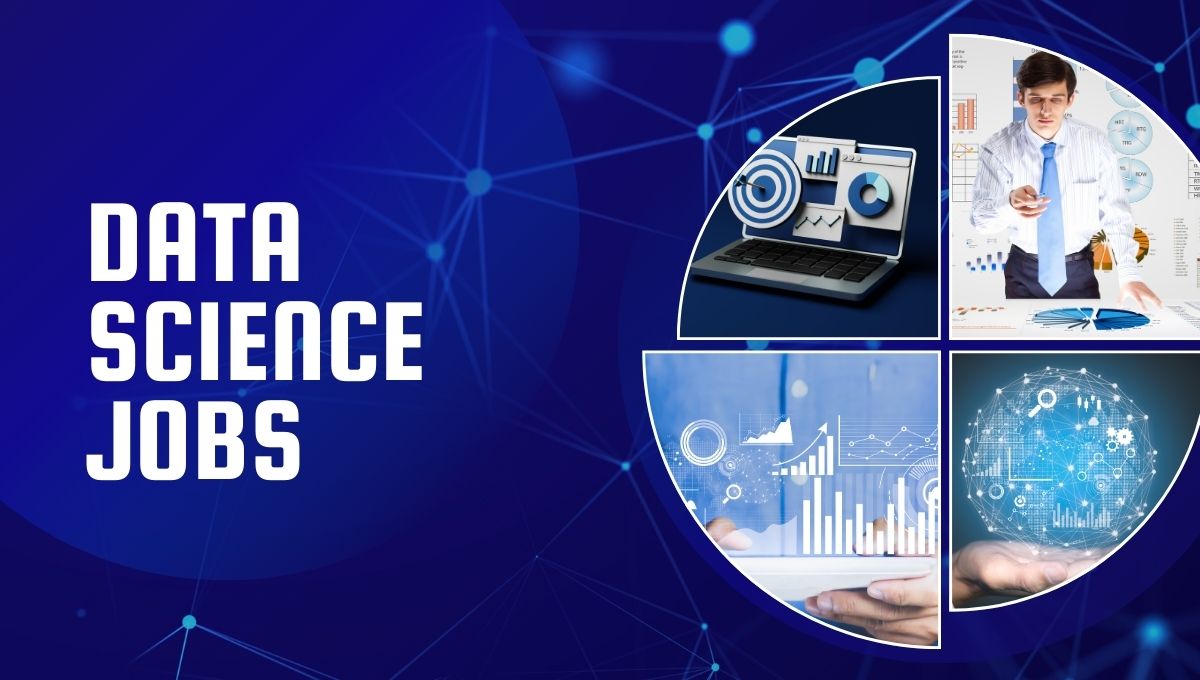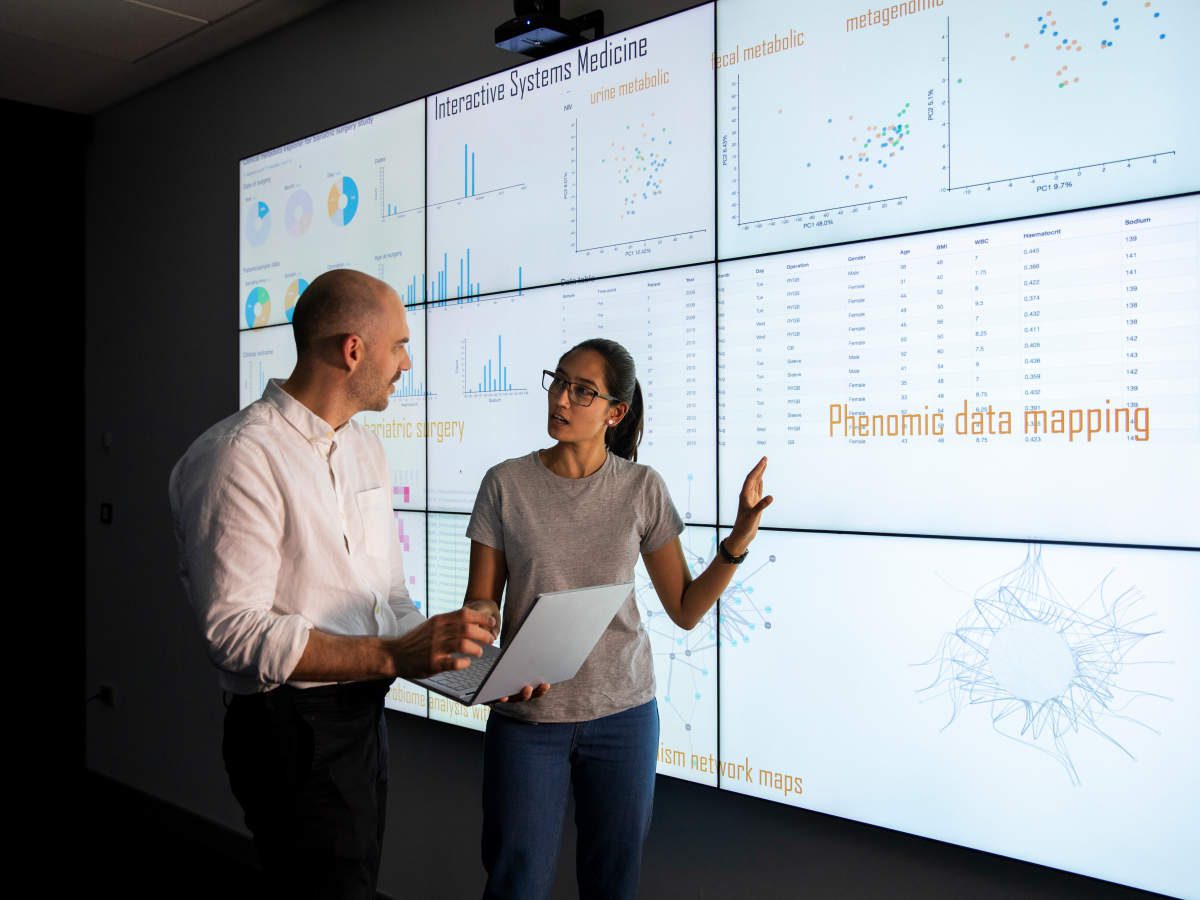Most of the companies within every sector, nowadays, focus on moving into a data-driven approach in coming up with strategies to improve efficiency in operations and deliver better service to customers besides coming up with innovation.
And thus, knowing which is the biggest area of opportunities will make all the difference between being successful in traversing the road down the data scientist roadmap or failing with the planning of one’s career down data science.
According to research, In India, the data science market is expected to grow at a CAGR of over 33% from 2020 to 2026, driven by a growing emphasis on data-driven policies across sectors like finance, healthcare, and e-commerce. That’s an enormous push in the opportunities that professionals would want to establish their foothold in this domain.
If you are looking to penetrate this space, the appropriate data science course does turn out to be pretty crucial. That is, a good program will provide you with the right amount of technical knowledge, along with the right amount of practical experience and industry exposure to get you into data science jobs with a high growth rate.
Why Data Science Jobs Are in High Demand?
The Advent of Data-Driven Decision Making
A business activity today can leverage on big data, machine learning, as well as AI to drive efficiencies that better the user experience, enhance revenue, or both. All the same, organizations realize a need to process big datasets every day, and data science is turning out to be one of the most sought after data science jobs around.
With the emergence of smart technologies, automation, and predictive analytics, data-driven insights have now made the firm dependent on these to function ahead of the curve. Besides the advantages, a requirement is recognized in the analysis of big data, trend prediction, and decision-making through data.
Competitive Salaries
Firm-level data science career path growth with ample scope in this domain. The average salary for an Indian data scientist lies between INR 10-15 LPA and for experienced persons, it reaches the amount of INR 30+ LPA. For talented professionals, the market in the US or UK presents checks into the amount of $100,000-$150,000 a year.
Thus, one of the lucrative professions is due to the fact that data scientists willing to spend large amounts of money on companies from various domains fetch meaningful insights out of raw data.
Besides a good remuneration package, one of the reasons that people want data science career path. Experience and skill set perfectly aligned for a data analyst will eventually take that individual to become senior data scientists, machine learning engineers, and even chief data officers.
Top Industries Hiring Data Science Professionals
- Finance and Banking
The finance and banking industry ranks at the very top among those employing data science dominantly. For everything-ranging from fraud detection to algorithmic trading, not to mention countless others- it has employed analytics in this industry. Here are the most often found use cases that are mostly for financial institutions.
- Fraud Detection: It employs AI-enabled systems to check ongoing transactions constantly to spot activity considered suspicious real time.
- Customer Risk Assessment: predictive analytics can be used by banks to check the credit history of a potential customer.
- Investment Strategies: Algorithmic stock trading is applied data science in hedge funds and investment banks
Hire most in this industry are the following:
- Banks: HDFC, ICICI, SBI, Citibank
- Investment Firms: Goldman Sachs, J.P. Morgan, Morgan Stanley
- Fintech Companies: Paytm, Razorpay, PhonePe
- Healthcare and Pharmaceuticals
Healthcare Industry uses data science for:
- Predictive Analytics: The AI-based models assist in identifying the patterns that can lead to patient deterioration and cause diseases.
- Drug Discovery: Machine learning has expedited drug discovery and development within Pharma companies.
- Medical Imaging Analysis: AI enables doctors to provide proper diagnosis for diseases.
Key Hired in this sector are:
- Hospitals: Apollo, Fortis, AIIMS
- Pharma Majors: Pfizer, Novartis, Johnson & Johnson
- HealthTech Startups: Practo, 1mg, PharmEasy
- E-commerce and Retail
Data science is extensively used in the following sectors of e-commerce and retail:
- Customer Personalisation: Algorithms suggest products to the customer based on his activity.
- Supply Chain Management: Organizations use AI algorithms for demand forecasting and according to that, design out their inventory.
- Pricing Strategies: Price dynamic model, which changes the price due to competition and requirements of the customers.
Key players in this industry are:
- E-commerce Companies: Amazon, Flipkart, Myntra
- Retail Stores: Reliance Retail, Big Bazaar, D-Mart
- Market places: Nykaa, Meesho
- IT and Technology
- Tech companies apply data science for
- Cloud Computing: Handle massive data to load quicker
- Cybersecurity: AI-based security systems against threats and cyber attacks
- Software Development: Show the most appealing design with ease of usage to make it even more user-friendly.
Major recruiters in the field:
- Tech Giants: Google, Microsoft, Apple, Facebook
- IT Services Firms: Infosys, TCS, Wipro, Accenture
- AI & Cloud Companies: NVIDIA, IBM, Oracle
Want to get started with Data Science?
Step 1 – Choose the Right Data Science Course
The right data science course will equip you with the best skills for high-paying jobs in data science. The Postgraduate Program in Data Science and Analytics by Imarticus Learning offers:
- 100% Job Guarantee with 10 guaranteed interviews
- Live interactive sessions by expert faculty
- Practice with 25+ projects and get hands-on experience
- Career guidance which helps you acquire your dream job.
Step 2: Technical Skills
- In-depth skill building in the field of data science
- Programming: Python, R, SQL
- Data Visualization- Tableau, Power BI
- Machine Learning & AI- TensorFlow, Scikit-learn
Step 3: Practical Experience
Practical experience at job level on the projects based on industries will add more employability. Organisations require that candidate, who can make skills happy through practical use
Step 4 – Participation in Hackathons and Internship
A candidate gets to face actual experience in solving the problem through exposures to hacking and an internship. Definitely, such events as competitions on Kaggle enhance portfolios.
FAQs
- Most sought after jobs of a data scientist?
Finances, Health, E-Commerce and in IT would see data scientists are being hired most.
- Is a Fresher eligible to become a data scientist?
Fresher can most surely get data scientist job when he joins data science course, and few projects on hand for real times
- What is the duration to become a data scientist?
With the right training, one can be ready for the job in 6 months to 1 year.
- How much does a data scientist earn?
Average INR 10-15 LPA in India and up to INR 30+ LPA for experienced professionals.
- Which firms hire data science professionals?
Data science professionals are being actively hired by finance, healthcare, retail, IT, telecom, and manufacturing companies.
- What are the skills required for a data science job?
Base for Python, R, SQL, machine learning, data visualization, and AI frameworks
- How can I build my portfolio in data science?
Do Kaggle competitions, hackathons, open-source projects, and even real-world case studies that best present the skills that you bring to the table.
Conclusions
There is always a high demand for data science jobs, which also means the possibility of a good, stable-paying career. The finance, healthcare, e-commerce, and IT industries are currently hiring full-time specialists. So, you have all the potential to succeed as a data scientist if you sign up for the best data science course and gain hands-on knowledge of how to keep abreast of the trends in the industry.
All set to start off your career in data science? Enrol with the postgraduate program in Data Science and Analytics by Imarticus Learning today and begin to tread along this high-paying data science career path.




 There is a high usage of AI chatbots to get quick solutions to external factors. These chatbots communicate with customers, answer their questions, and record their responses. It is assumed that the usage of chatbots will multiply by 50 times compared to what it was before COVID.
There is a high usage of AI chatbots to get quick solutions to external factors. These chatbots communicate with customers, answer their questions, and record their responses. It is assumed that the usage of chatbots will multiply by 50 times compared to what it was before COVID. The demands for various data science services have been seeing a large surge all over the world as researchers for the market predict its magnification in the near future. Due to this increased demand, the path for various other talents and job aspirants is clearing. This would allow them to try their hand and work hard while in this genre of work. The vast number of technologies in relation to data are creating large opportunities for up and coming data professionals to seize.
The demands for various data science services have been seeing a large surge all over the world as researchers for the market predict its magnification in the near future. Due to this increased demand, the path for various other talents and job aspirants is clearing. This would allow them to try their hand and work hard while in this genre of work. The vast number of technologies in relation to data are creating large opportunities for up and coming data professionals to seize.
 One of the most basic and key responsibilities of data scientists in an organization is to identify existing challenges and problems that a business is facing and finding solutions to remedy the situation. This might seem like a generic responsibility of every important professional but the main difference here is that data scientists use tons of relevant data to find the problem.
One of the most basic and key responsibilities of data scientists in an organization is to identify existing challenges and problems that a business is facing and finding solutions to remedy the situation. This might seem like a generic responsibility of every important professional but the main difference here is that data scientists use tons of relevant data to find the problem. The 21st Century businesses are complex than ever, there are various factors that determine the fate of an organization. With the number of complexities that exist, it’s very difficult to figure out what impacts your business and how it does that.
The 21st Century businesses are complex than ever, there are various factors that determine the fate of an organization. With the number of complexities that exist, it’s very difficult to figure out what impacts your business and how it does that. Data science is one of the most in-demand skills in the industry and given the wide range of applications that it has, the demand for a
Data science is one of the most in-demand skills in the industry and given the wide range of applications that it has, the demand for a 
 Over the past few months, colleges and academic institutions have seen a significant rise in enrollment in
Over the past few months, colleges and academic institutions have seen a significant rise in enrollment in 